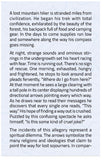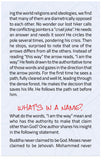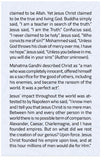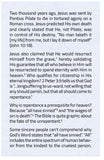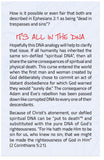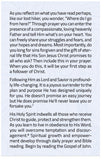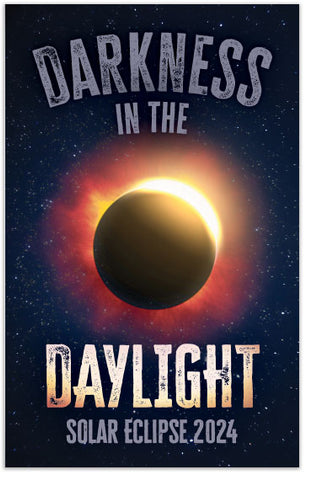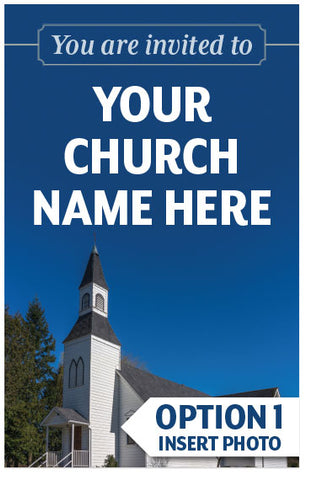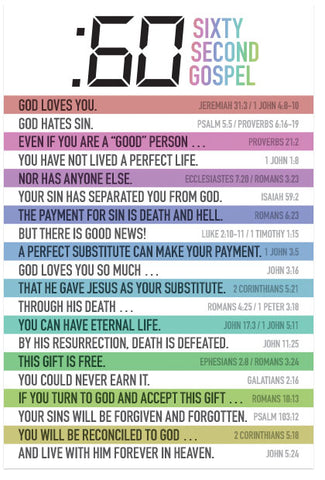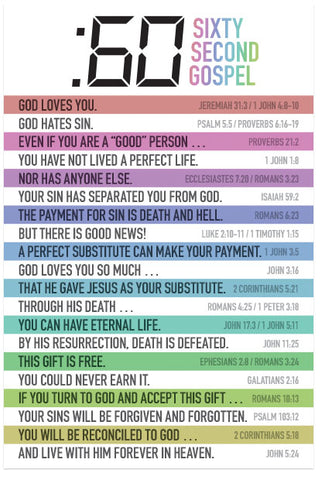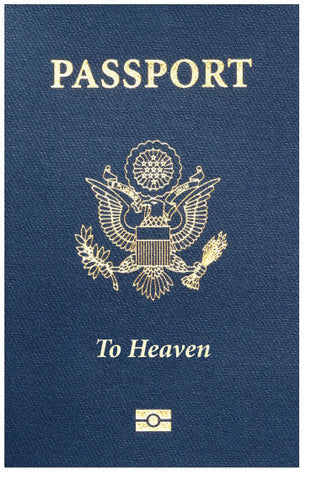Where Do I Go From Here?
Special-Order Folded Tract
 NOTE: This item is custom-printed to order (click for more details).
NOTE: This item is custom-printed to order (click for more details).
This tract is from our print-on-demand library, and is not kept in stock. Select the options below, and we will custom-print a batch just for you. Because this item is custom-printed, you can add your custom imprint to the back page at no extra cost.
- Estimated shipping date: Thursday, March 26 (Click for more details)
- SKU:
- Discounts: Discount coupons do not apply to this item
- Format: Folded Tract
- Size: 3.5 inches x 5.5 inches
- Pages: 8
- Imprinting: Available with 5 lines of custom text
- Version: KJV
- Returns: Because this item is custom-printed to order, it cannot be returned.
Show all item details
The full text of this tract is shown below in the KJV version. (Do you want to print this tract in a different version than the one listed? Contact us and let us know what you're looking for—we may be able to create the alternate version for you at no charge.)
A lost mountain hiker is stranded miles from civilization. He began his trek with total confidence, exhilarated by the beauty of the forest, his backpack full of food and camping gear. In the days to come supplies run low and somewhere along the way his compass goes missing.
At night, strange sounds and ominous stirrings in the undergrowth set his heart racing with fear. Time is running out. There’s no sign of rescue. One morning, exhausted, hungry and frightened, he stops to look around and pleads fervently, “Where do I go from here?” At that moment he sees a large clearing with a tall pole in its center displaying hundreds of directional arrows pointing every which way. As he draws near to read their messages he discovers that every single one reads, “This way.” His hope of finding a way out is crushed. Puzzled by this confusing spectacle he asks himself, “Is this some kind of cruel joke?”
The incidents of this allegory represent a spiritual dilemma. The arrows symbolize the many religions and ideologies that claim to point the way for lost sojourners. In comparing the world religions and ideologies, we find that many of them are diametrically opposed to each other. No wonder our lost hiker calls the conflicting pointers a “cruel joke”. He needs an answer and needs it soon! He circles the pole several times, pondering his crisis. Then he stops, surprised to note that one of the arrows differs from all the others. Instead of reading “this way” the arrow reads, “I am the way.” He feels drawn to the authoritative tone of those words and gazes in the direction that the arrow points. For the first time he sees a path, fully cleared and well lit, leading through the dense forest. He makes the decision that saves his life. He follows the path set before him.
WHAT’S IN A NAME?
What do the words, “I am the way” mean and who has the authority to make that claim other than God? One author shares his insight in the following statement.
Buddha never claimed to be God. Moses never claimed to be Jehovah. Mohammed never claimed to be Allah. Yet Jesus Christ claimed to be the true and living God. Buddha simply said, “I am a teacher in search of the truth.” Jesus said, “I am the Truth.” Confucius said, “I never claimed to be holy”. Jesus said, “Who convicts me of sin?” Mohammed said, “Unless God throws his cloak of mercy over me, I have no hope.” Jesus said, “Unless you believe in me, you will die in your sins.”
Mahatma Gandhi described Christ as “a man who was completely innocent, offered himself as a sacrifice for the good of others, including his enemies, and became the ransom of the world. It was a perfect act”.
Jesus’ impact throughout the world was attested to by Napoleon who said, “I know men and I tell you that Jesus Christ is no mere man. Between him and every other person in the world there is no possible term of comparison. Alexander, Caesar, Charlemagne, and I have founded empires. But on what did we rest the creation of our genius? Upon force. Jesus Christ founded his empire upon love, and at this hour millions of men would die for Him.”
Two thousand years ago, Jesus was sent by Pontius Pilate to die in tortured agony on a Roman cross. Jesus predicted His own death and clearly stated that He, not Pilate, was in control of His destiny. “No man taketh it [my life] from me, but I lay it down of myself” (John 10:18).
Jesus also claimed that He would resurrect Himself from the grave,1 hereby validating His guarantee that all who believe in Him will be resurrected to spend eternity with Him in heaven.2 Who qualifies for citizenship in His eternal kingdom? 2 Peter 3:9 tells us that God is “…longsuffering to us-ward, not willing that any should perish, but that all should come to repentance.”
Why is repentance a prerequisite for heaven? Because “all have sinned”3 and “the wages of sin is death”.4 The Bible is quite graphic about the fate of the unrepentant.5
Some sincere people can’t comprehend why God’s Word states that “all have sinned”. “All” includes the entire spectrum of human behavior from the kindest to the cruelest person. How is it possible or even fair that both are described in Ephesians 2:1 as being “dead in trespasses and sins”?
IT’S ALL IN THE DNA
Hopefully this DNA analogy will help to clarify that issue. If all humanity has inherited the same sin-defiled “spiritual DNA”, then all share the same consequences of spiritual and physical death. This curse entered the world when the first man and woman created by God deliberately chose to commit an act of blatant disobedience for which God warned they would “surely die.” The consequence of Adam and Eve’s rebellion has been passed down like corrupted DNA to every one of their descendants.
Because of Christ’s atonement, our defiled spiritual DNA can be “put to death”6 and substituted with the pure DNA of God’s righteousness. “For He hath made Him to be sin for us, who knew no sin; that we might be made the righteousness of God in Him” (2 Corinthians 5:21).
As you reflect on what you have read perhaps, like our lost hiker, you wonder, “Where do I go from here?” Through prayer you can enter the presence of a compassionate, loving heavenly Father and tell Him what’s on your heart. You can freely share your struggles and fears, and your hopes and dreams. Most importantly, do you long for sins forgiven and the gift of eternal life that His Son Jesus Christ promises to all who ask? Then include this in your prayer. When you do this, it will be your first step as a follower of Christ.
Following Him as Lord and Savior is profoundly life-changing. It is a joyous surrender to the plan and purpose He has designed uniquely for you. He doesn’t promise an easy journey but He does promise He’ll never leave you or forsake you.7
His Holy Spirit indwells all those who receive Christ to guide, protect and strengthen them. As you learn to live in obedience to His Word, you will overcome temptation and discouragement.8 Spiritual growth and empowerment develop through daily prayer and Bible reading. Begin by reading the Gospel of John.
Interacting with other Christians will help and encourage you.9 Seek out a church where Christ is honored and His Word is taught.
As you progress along the path to Christian maturity, you will become a life-saving directional arrow for a world full of lost hikers who are still seeking the path that leads home.
For further information and inspiration along you spiritual path, go to:
CREATION.COM and billygraham.ca/decision
1 John 2:19; Romans 1:4; 2 John 11:25-26; 3 Romans 3:23; 4 Romans 6:23; 5 Revelation 20:1; 6 Romans 6:6; 7 Hebrews 13:5; 8 1 Corinthians 10:12-13; 9 Hebrews 10:25



